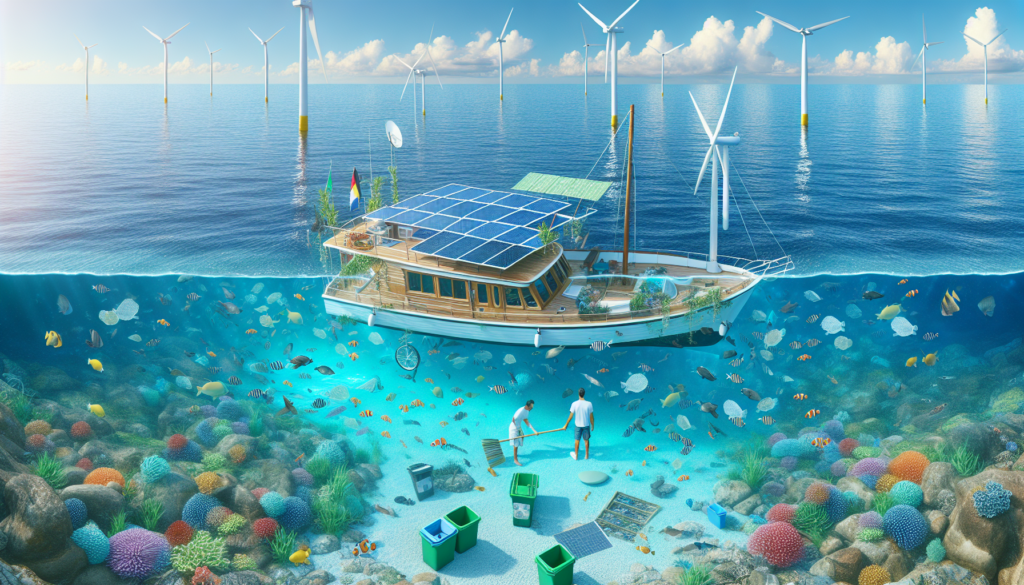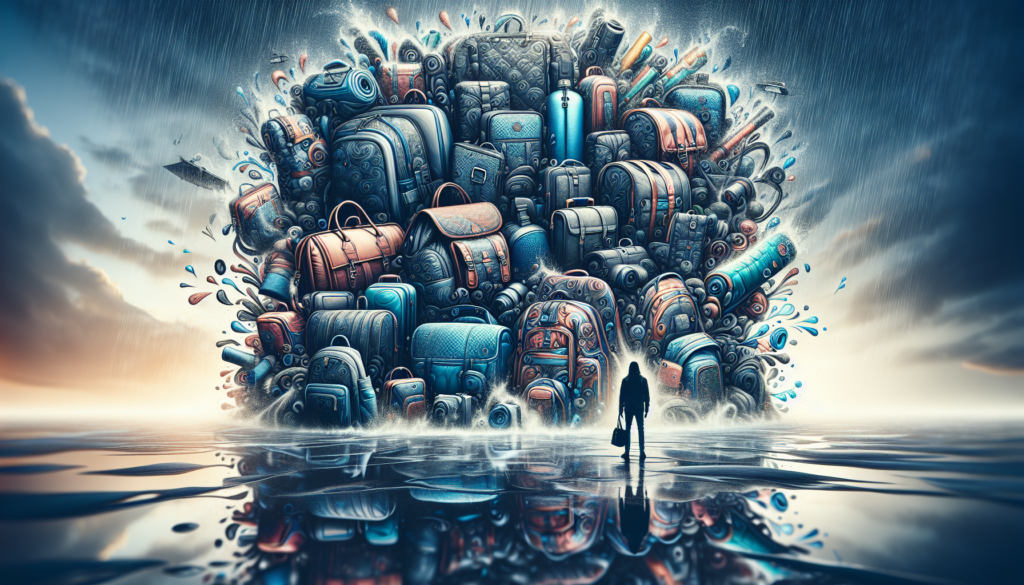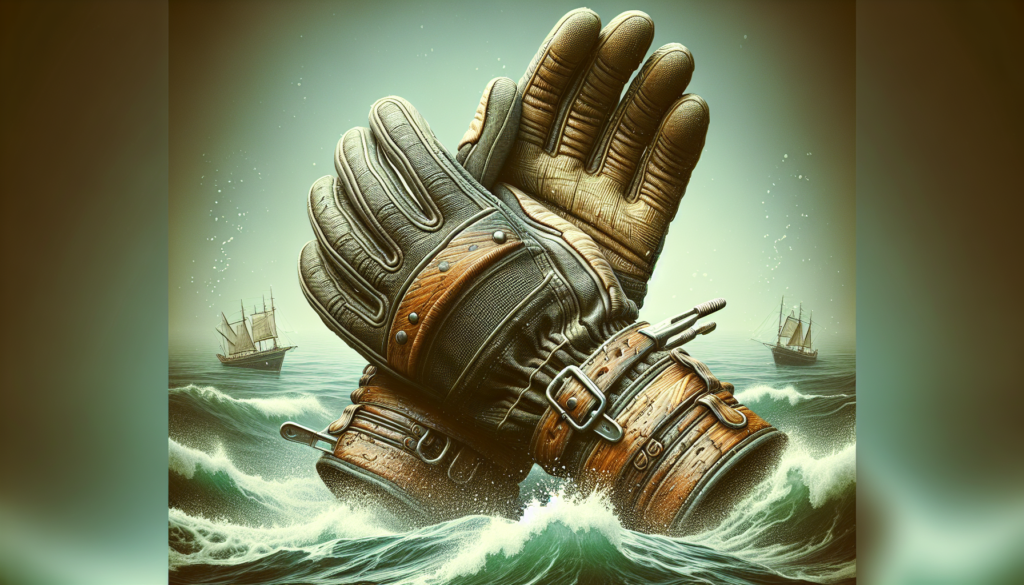Eco-Friendly Boating Practices: Navigating Towards a Sustainable Future
Boating enthusiasts around the world have long enjoyed the freedom and tranquility that comes with exploring the open waters. However, the environmental impact of traditional boating practices cannot be ignored. From fuel emissions to marine pollution, the carbon footprint of recreational boating is significant. In recent years, there has been a growing emphasis on adopting eco-friendly boating practices to minimize harm to our oceans and marine ecosystems. In this comprehensive guide, we will delve into the world of eco-friendly boating, exploring innovative technologies, sustainable strategies, and the importance of conservation efforts. Join us as we navigate towards a more sustainable future on the water.
The Rise of Eco-Friendly Boating
As awareness of environmental issues continues to grow, so does the demand for eco-friendly boating practices. Boaters, manufacturers, and policymakers are increasingly recognizing the need to reduce the impact of recreational boating on the environment. This shift towards sustainability is evident in the development of cleaner, greener technologies and the implementation of conservation measures. Let’s explore some key aspects of eco-friendly boating and the positive changes it brings to the marine industry.
1. Sustainable Boat Design
One of the fundamental pillars of eco-friendly boating is sustainable boat design. Manufacturers are increasingly incorporating environmentally friendly materials and technologies into the construction of boats. From using recycled materials to reducing carbon emissions, sustainable boat design plays a crucial role in minimizing the environmental impact of boating. For example, electric boats are gaining popularity as a clean and efficient alternative to traditional fuel-powered vessels. These boats run on electric motors powered by batteries, eliminating the need for fossil fuels and drastically reducing emissions.

2. Alternative Propulsion Systems
Traditional gasoline-powered engines are a major source of pollution in the marine environment. To combat this issue, many boaters are turning to alternative propulsion systems that are more environmentally friendly. Electric propulsion, solar power, and hydrogen fuel cells are just a few examples of clean energy solutions that are revolutionizing the boating industry. These technologies offer a quieter, more efficient, and emission-free alternative to traditional engines, helping to preserve the natural beauty of our oceans and waterways.
3. Energy-Efficient Practices
Boaters can also contribute to eco-friendly practices by adopting energy-efficient habits while on the water. Simple actions such as reducing speed, properly maintaining engines, and optimizing fuel consumption can significantly reduce the overall environmental impact of boating. Additionally, using energy-efficient appliances, LED lighting, and solar panels onboard can further decrease energy consumption and reliance on non-renewable resources. By embracing these practices, boaters can enjoy a more sustainable and cost-effective boating experience.
4. Waste Management and Pollution Prevention
Proper waste management and pollution prevention are essential components of eco-friendly boating. Boaters must adhere to strict guidelines for disposing of trash, sewage, and hazardous materials to prevent contamination of the marine environment. Recycling, composting, and using eco-friendly cleaning products can help reduce waste and minimize pollution in our oceans. Additionally, boaters should be mindful of their carbon footprint and strive to leave no trace while enjoying the water. By taking these proactive measures, boaters can help preserve the health and beauty of our marine ecosystems for future generations.
5. Conservation and Habitat Protection
Conservation and habitat protection are key elements of eco-friendly boating practices. Boaters can actively participate in conservation efforts by supporting marine sanctuaries, wildlife reserves, and habitat restoration projects. By respecting marine life, avoiding sensitive areas, and practicing responsible boating behavior, boaters can help protect fragile ecosystems and preserve biodiversity. Education and awareness are also essential in promoting conservation initiatives, ensuring that boaters understand the importance of preserving our natural resources for the benefit of all.
Expert Opinions
We spoke with marine biologist Dr. Emily Johnson, who emphasized the critical role of eco-friendly boating practices in marine conservation. According to Dr. Johnson, “Boaters have a unique opportunity to contribute to the protection of our oceans and marine life. By adopting sustainable habits and supporting conservation efforts, boaters can make a positive impact on the environment and help safeguard our precious marine ecosystems.” Experts like Dr. Johnson highlight the importance of collective action in preserving the health and vitality of our oceans.
Conclusion
As we navigate towards a more sustainable future, eco-friendly boating practices are essential in protecting our oceans and waterways. By embracing sustainable technologies, energy-efficient practices, and conservation efforts, boaters can minimize their environmental impact and contribute to the preservation of marine ecosystems. The shift towards eco-friendly boating is not only a responsible choice but also a rewarding one, allowing boaters to enjoy the natural beauty of the water while safeguarding it for future generations. Let’s all do our part to promote eco-friendly boating practices and ensure a cleaner, greener future on the water.
Long story short, eco-friendly boating practices are more than just a trend they are a vital step towards building a more sustainable and environmentally conscious boating industry. By taking proactive measures to reduce our impact on the environment, we can all play a role in protecting our precious oceans and marine ecosystems. Together, let’s sail towards a brighter and cleaner future on the water.



